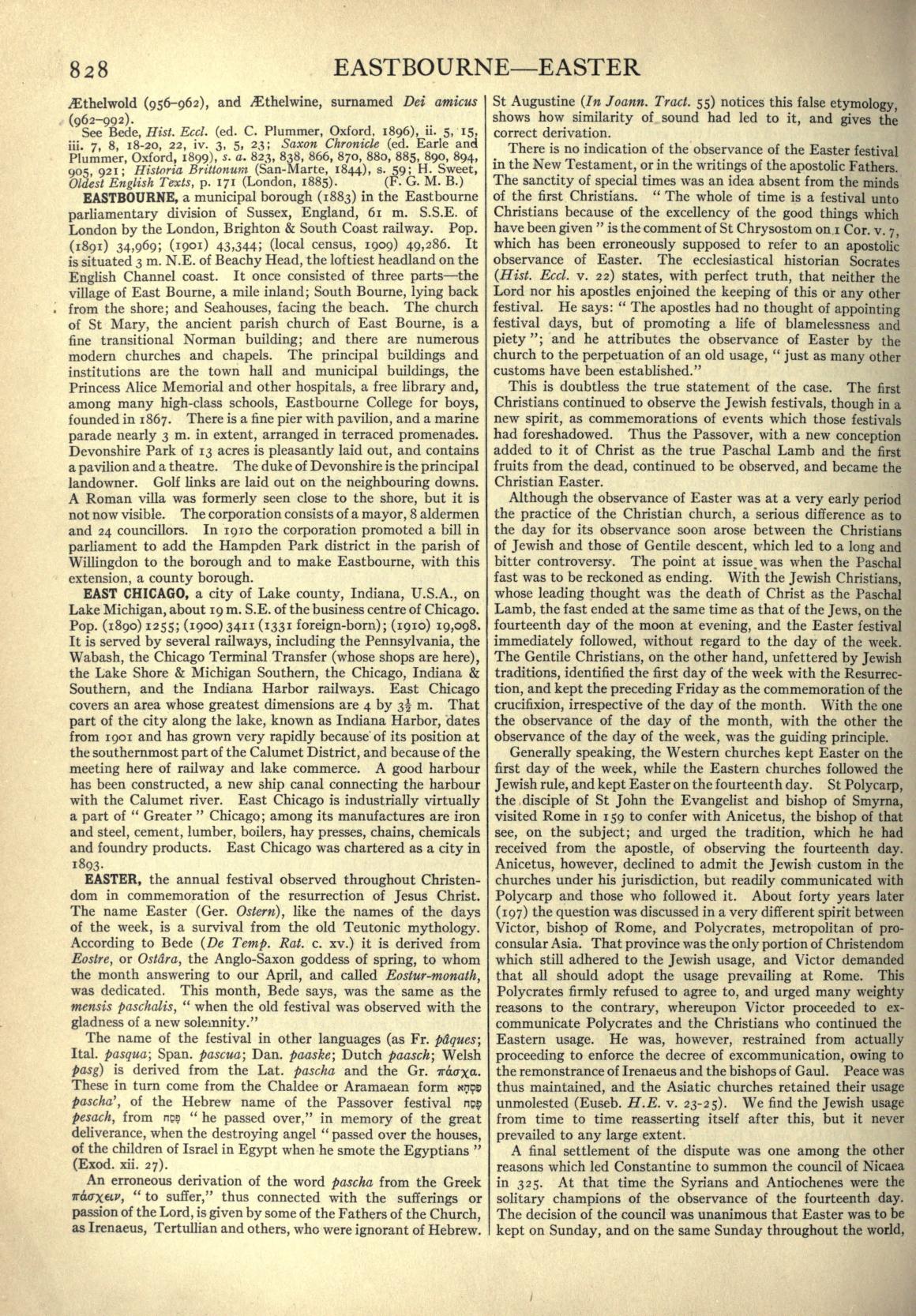The truth shall set you free.........
Encyclopedia Britannica 11th Edition - Easter
https://archive.org/stream/encyclopaediabrit08chisrich#page/828/mode/2up
There is no indication of the observance of the Easter festival
in the New Testament, or in the writings of the apostoh'c Fathers.
The sanctity of special times was an idea absent from the minds
of the first Christians. " The whole of time is a festival unto
Christians because of the excellency of the good things which
have been given " is the comment of St Chrysostom on i Cor. v. 7,
which has been erroneously supposed to refer to an apostolic
observance of Easter. The ecclesiastical historian Socrates
(Hist. Eccl. v. 22) states, with perfect truth, that neither the
Lord nor his apostles enjoined the keeping of this or any other
festival. He says: " The apostles had no thought of appointing
festival days, but of promoting a life of blamelessness and
piety "; and he attributes the observance of Easter by the
church to the perpetuation of an old usage, " just as many other
customs have been established."
This is doubtless the true statement of the case. The first
Christians continued to observe the Jewish festivals, though in a
new spirit, as commemorations of events which those festivals
had foreshadowed. Thus the Passover, with a new conception
added to it of Christ as the true Paschal Lamb and the first
fruits from the dead, continued to be observed, and became the
Christian Easter.
Although the observance of Easter was at a very early period
the practice of the Christian church, a serious difference as to
the day for its observance soon arose between the Christians
of Jewish and those of Gentile descent, which led to a long and
bitter controversy. The point at issue, was when the Paschal
fast was to be reckoned as ending. With the Jewish Christians,
whose leading thought was the death of Christ as the Paschal
Lamb, the fast ended at the same time as that of the Jews, on the
fourteenth day of the moon at evening, and the Easter festival
immediately followed, without regard to the day of the week.
The Gentile Christians, on the other hand, unfettered by Jewish
traditions, identified the first day of the week with the Resurrec-
tion, and kept the preceding Friday as the commemoration of the
crucifixion, irrespective of the day of the month. With the one
the observance of the day of the month, with the other the
observance of the day of the week, was the guiding principle.
Generally speaking, the Western churches kept Easter on the
first day of the week, while the Eastern churches followed the
Jewish rule, and kept Easter on the fourteenth day. St Polycarp,
the disciple of St John the Evangelist and bishop of Smyrna,
visited Rome in 159 to confer with Anicetus, the bishop of that
see, on the subject; and urged the tradition, which he had
received from the apostle, of observing the fourteenth day.
Anicetus, however, declined to admit the Jewish custom in the
churches under his jurisdiction, but readily communicated with
Polycarp and those who followed it. About forty years later
(197) the question was discussed in a very different spirit between
Victor, bishop of Rome, and Polycrates, metropolitan of pro-
consular Asia. That province was the only portion of Christendom
which still adhered to the Jewish usage, and Victor demanded
that all should adopt the usage prevailing at Rome. This
Polycrates firmly refused to agree to, and urged many weighty
reasons to the contrary, whereupon Victor proceeded to ex-
communicate Polycrates and the Christians who continued the
Eastern usage. He was, however, restrained from actually
proceeding to enforce the decree of excommunication, owing to
the remonstrance of Irenaeus and the bishops of Gaul. Peace was
thus maintained, and the Asiatic churches retained their usage
unmolested (Euseb. H.E. v. 23-25). We find the Jewish usage
from time to time reasserting itself after this, but it never
prevailed to any large extent.
